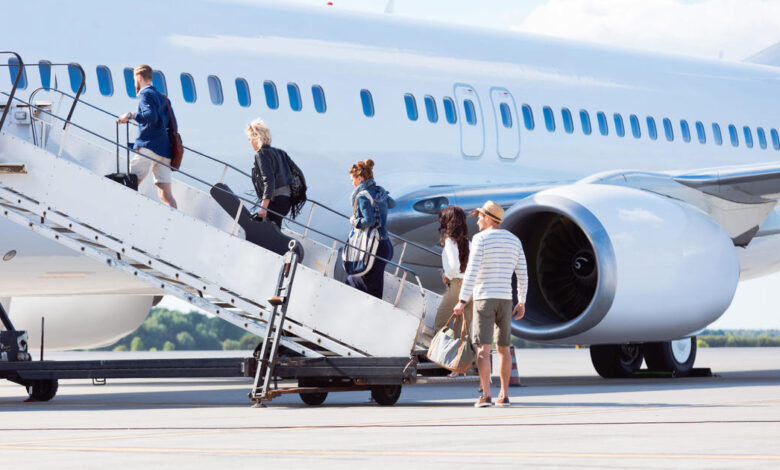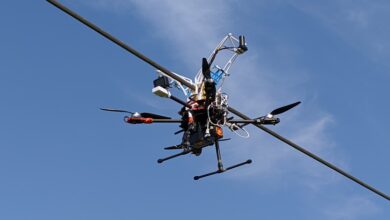Delta is changing how it boards passengers starting May 1

Delta Air Lines is changing its boarding process beginning May 1 in an effort to speed up loading passengers onto planes.
If you’re flying on the airline, you’ll have to know what zone number you’re in to board in the correct sequence. The move is hardly innovative, experts say, and instead reflects a return to the traditional way of boarding passengers followed by most airlines.
That’s because Delta is introducing numbered boarding zones for all flights, meaning that customers will have a zone number assigned to them instead of boarding groups labelled by airline status or fare class, such as “Sky Priority.” The airline stressed that boarding orders will not change, but the group names will.
When Delta introduced its branded fare boarding process in 2018, it called zone boarding “a thing of the past.” But the airline is now reverting to the traditional way of boarding people, in what some experts call an unusual move for an innovative airline.
Customers who need more assistance will still pre-board as usual before passengers in Zone 1, which will comprise Delta One and First Class customers. Zone 2 will include Diamond Medallion Members and Delta Premium Select ticket holders.
Delta Comfort+ customers will board in Zone 3, followed by Sky Priority in Zone 4, according to a chart on the airline’s website. Zone numbers will go up to 8, when basic economy passengers will board.
Delta said the change is small, but could make the process easier for infrequent fliers and non-English speakers who only have to listen for a number to know when it’s their turn to board. The change will also make the process less stressful for gate agents, Delta added.
Still, some travel experts questioned whether the change would meaningfully speed up the boarding process.
“They’re not changing who boards when or the sequence,” Clarkson University professor John Milne, an expert on airline boarding, told CBS MoneyWatch. “All they are changing is the names of what passenger group boards next.”
In a statement to CBS MoneyWatch, Delta said the “simple change” will “provide customers more clarity into the boarding sequence and make the boarding process more intuitive—especially for infrequent travelers and/or customers who might face a language barrier at the gate.”
Delta added, “Numbered zones will also align more closely with our joint venture and international partners, providing international customers a more simplified, consistent experience when traveling on mixed-metal itineraries. ”
CEO Ed Bastian addressed the change on the company’s first quarter earnings call Wednesday. “When you have a number and you’re standing in line, we are all trained to know when it’s our turn,” Bastian said.
Superficial changes?
The change is fairly superficial, Milne said, noting there are other changes Delta and its competitors could make to boarding processes that would make them more efficient.
The airline still prioritizes passengers with airline status or who paid for a higher class fare on a particular flight. Instead, it would be more efficient to board passengers based on where on the aircraft they are seated, Milne said.
For example, boarding window seat customers in the back half of the plane first would speed up the process. “That way you would minimize some of the congestion,” he said.
Delta instead assigns passengers to boarding groups based on their loyalty to the airline and ticket prices.
Travel expert Scott Keyes also emphasized that the change does little to meaningfully improve or expedite the boarding process. All Delta is doing is reverting to the traditional way of boarding passengers and scrapping its branded boarding process that began in 2018, he noted.
“The fact that they’ve reverted to numbered zones, like those employed by virtually all other airlines, speaks volumes,” Keyes said. “Traditionally, Delta has been seen as the innovative airline and others have followed suit. In this case, Delta’s innovation didn’t pan out, and they’ve been forced to once again mimic American and United’s boarding processes.”
To be sure, any move that would actually speed up passenger boarding could give an airline a leg up on competitors.
“Speeding up the boarding process by even 10 minutes can prevent delays, and if sustained, allow airlines to add an additional daily flight to the schedule,” Keyes said.
The airline posted a $37 million first-quarter profit on Wednesday and said demand for air travel is strong heading into the busy summer travel season. Travelers are flocking to book trips despite a string of recent air safety incidents, including a panel blowing off a Boeing 737 Max aircraft during an Alaska Airlines flight.




